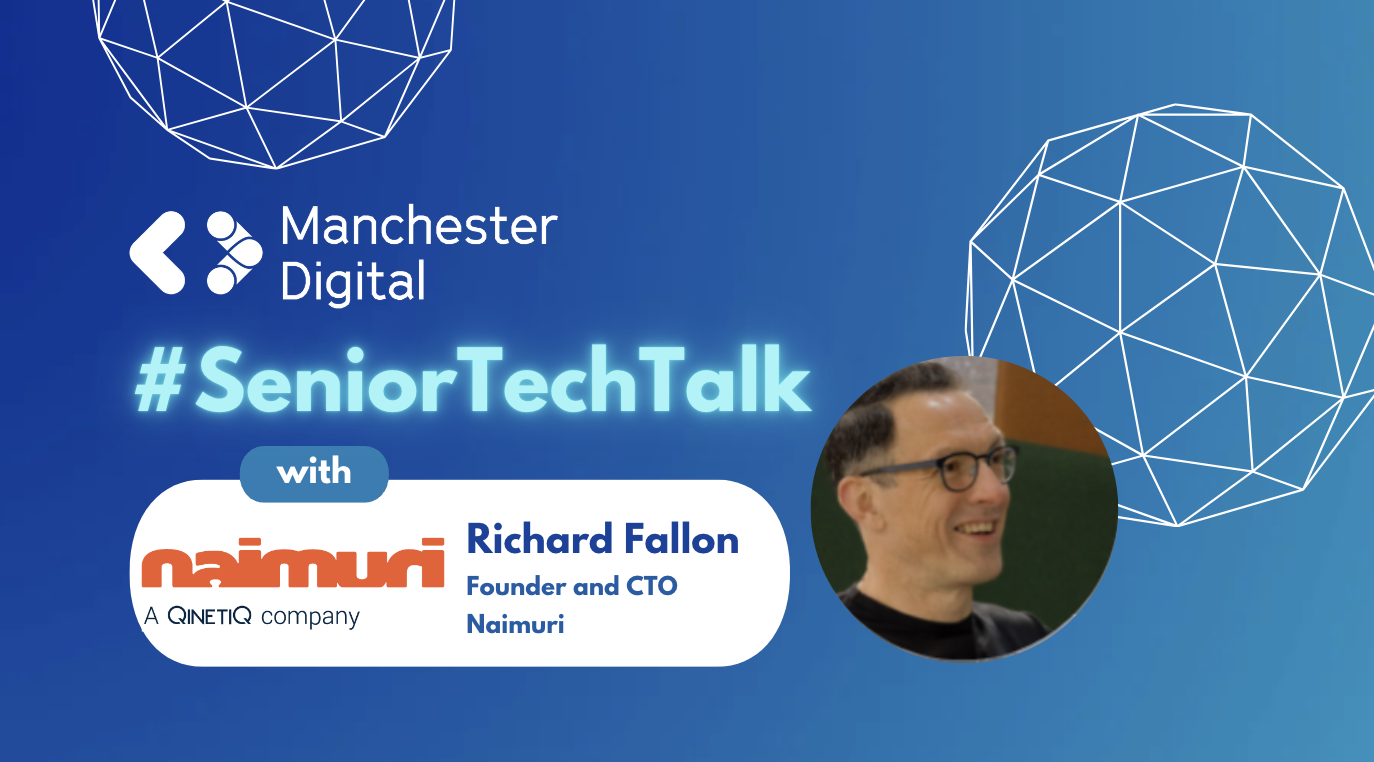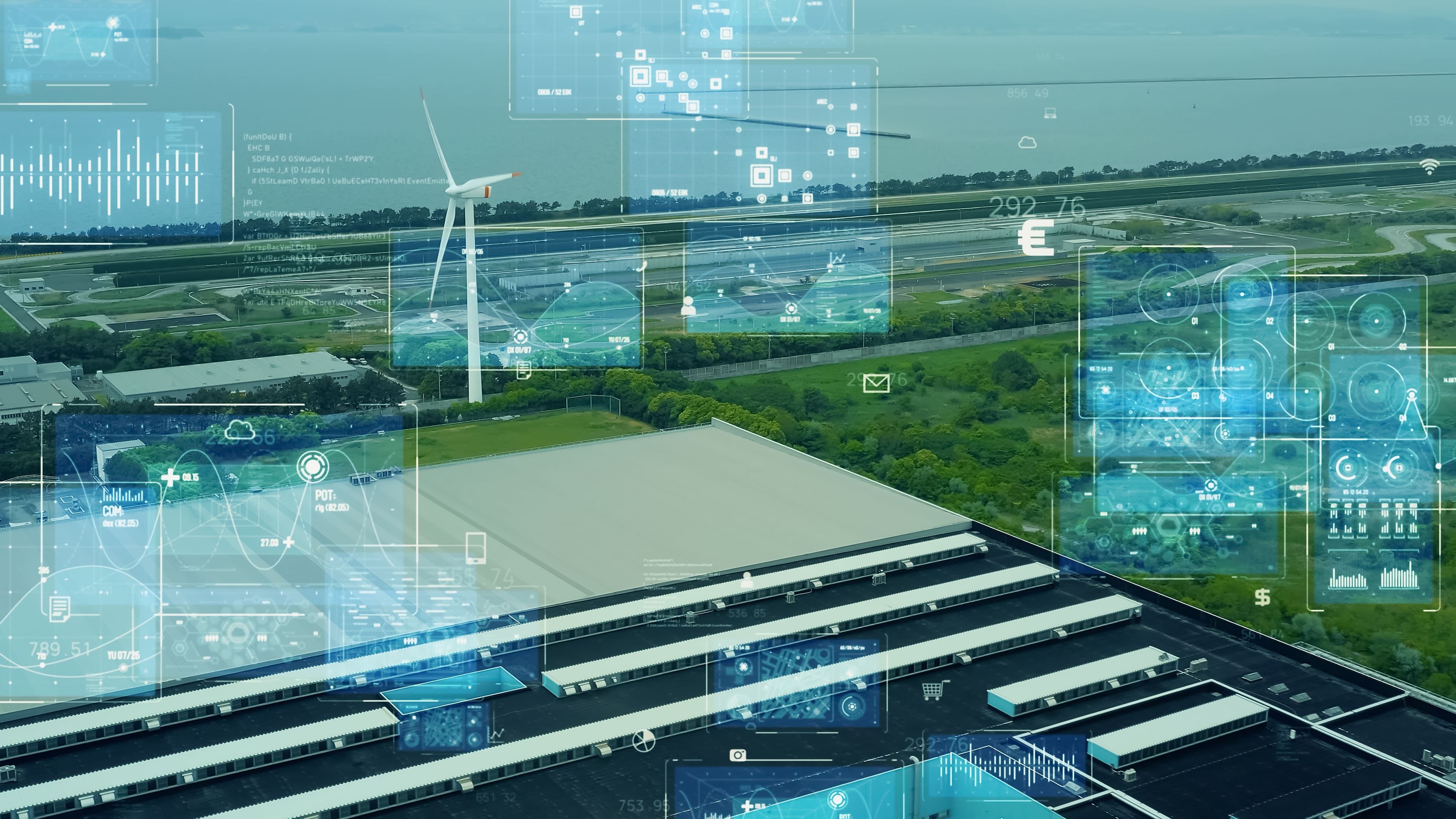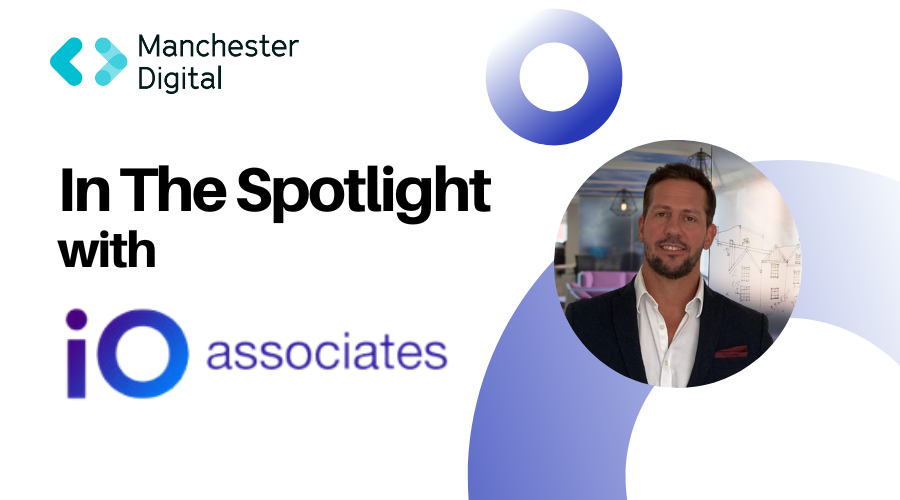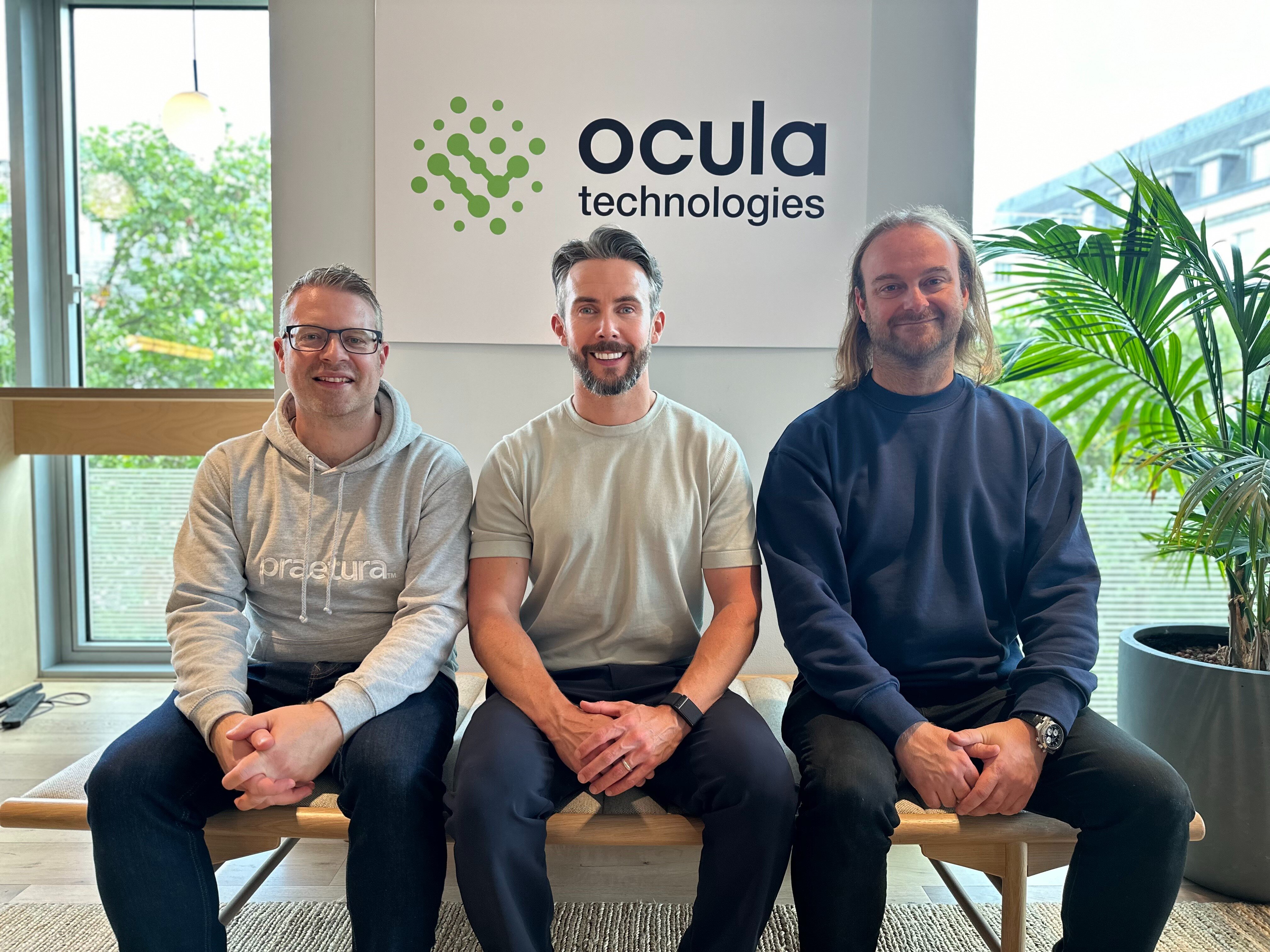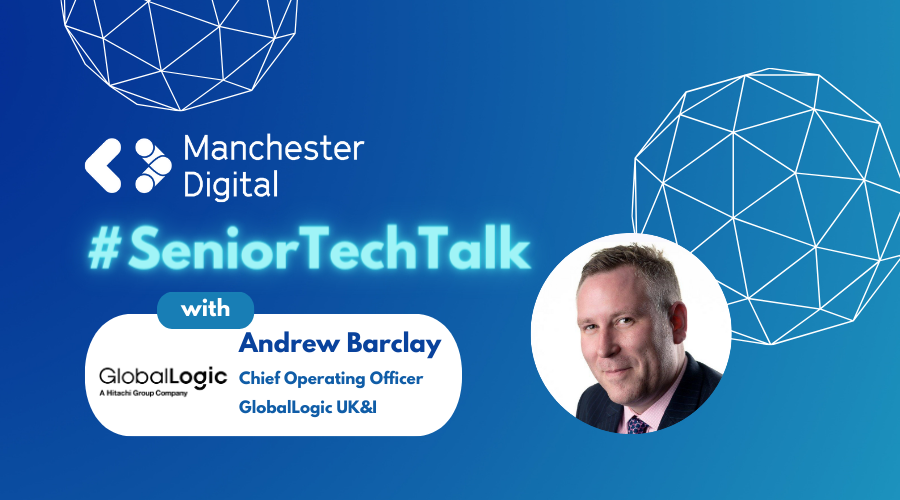
GlobalLogic is a leading digital product engineering company, workign with their clients to design and build innovative products, platforms and experiences.
We sat down with Andrew Barclay, Chief Operating Officer at GlobalLogic UK&I, for the latest Senior Tech Talk as we discussed their journey over the past 20 years, the technology space that they operate in, their people and much more.
Could you begin by telling us a little bit about GlobalLogic?
GlobalLogic is part of the Hitachi Group, who we were acquired by in June 2020, but we have been operating for around 20 years. We are headquartered in California and started out as a software business. Since then, we have grown as a leader in digital product engineering and are now standing at 30,000 employees across 20 countries worldwide.
The company’s goal is to develop sustainable and purposeful growth. Our key aims are to help our clients imagine what’s possible and accelerate their transition into tomorrow’s digital businesses. We do this by helping them design and build innovative products and platforms, for the modern world, that will enhance lives and in some cases even save lives.
We work across a number of industry sectors, but the commonality there is that we are a design, data driven, engineering company. Working on strategic design and complex engineering activities, we have a great vertical experience across the sectors. We also have a very strong tie in with Hitachi since the acquisition, that allows us to work on their operating technologies and help build out and drive some of their product growth as well.
In the UK and Ireland we have expanded our footprint to around 1,000 colleagues through the acquisition of a business called ECS back in November 2020 and most recently this year a business called Sidero in the Republic of Ireland. This particular growth and focus is very much around what the UK and Ireland market tends to offer in the space, so we have a strong focus on the likes of financial services, consumer services, industrial and utilities.
And what is your role within the business?
I have been with the business for eight years and I'm currently responsible for operations within the context of the UK & I business unit, and I also dual hat that role as the Commercial Officer for our Financial Services sales unit worldwide. As a result, I have both a UK & I perspective and a global role as well within the context of our FS business.
Digital product engineering is an area that is prevalent but probably underrepresented in terms of where technology companies want to take that sector. I believe that we are now seeing the importance of what companies like GlobalLogic can bring to the market, in terms of helping shape the products shaping the businesses of tomorrow.
Could you tell us a little more about the sectors and verticals that GlobalLogic focus on?
Our expertise is in a number of sectors, this includes automotive and industrial, communications, financial services, healthcare and life science, media and entertainment.
We also have a presence in the technology industry around software, working with some of the large tech providers, and across manufacturing and semiconductor industries.
What do GlobalLogic see as the biggest challenge in the technology space over the next few years?
The most likely disruptive events we see in that space, is going to come from a number of areas.
Generative AI is going to be up there near the top. I think the advancement in the communications platform, with the onset of 5G labs and the move to 6G, will have a big effect not only on an industrial business scale but also in the consumer tech space, and how we all live our lives from a consumption perspective.
That will also lead to more self-directional and automated interactions, especially in sectors like automotive and healthcare. I think we are already seeing the direction of travel with how we are now adapting the automotive experience. If you imagine what a mobile phone is in your hand, the car will now just be a steering wheel and four wheels with the software power to generate and drive people's lives and existence.
Key to GlobalLogic and what we are looking at is, how do we take the generative AI conundrum and use that in our data and analytics in a way that is more sustainable, powerful and purposeful.
Cloud is also omnipresent but there's a lot more potential, which I think is unlocked as we see in other industry paradigms, namely the automotive, industrial, consumer technology spaces – the cloud will come again.
Finally, there’s the whole sustainability as a service. As part of the wider Hitachi Group, we’re looking at sustainable innovation. So, I think of it in terms of Sustainability-as-a-Service, whether that be in the development of your code, the development of your infrastructure, or your products and how you engineer them, that is going to be very prevalent across the industry. Certainly, in the UK and the major Western European economies.
Speaking of sustainability, what role do you see tech playing in enterprises’ sustainability agendas?
I talk to clients regularly and you can have a conversation around sustainability that starts with “what's our CO2 footprint – we plant a new forest every week to sustain the staff canteen…” not to be too flippant about it!
But there is an angle there for technology, at an enterprise level, where the sustainability agenda can be overarching and holistic. From a GlobalLogic perspective, we see it very much as an area that we can play a key role in at the design outset.
It could be the engineering or the ongoing services, or as we would obviously like to teach our customers, across the whole lifecycle.
The interesting thing for me is that most enterprises are still working out how they can tackle the sustainability agenda in a more holistic fashion. I think there’s still a lot of piecemeal projects, programmes, products out there that need more thinking and bringing together. This is certainly an area where GlobalLogic can play a part, and it is very much a top-of-mind topic on any new project or business that we work on.
We often focus on the tech itself, but what role do you think people have to play in the successful implementation of tech?
Its an obvious statement to make, “Clearly without the people, the tech doesn’t happen”.
I think without being able to articulate the benefits, the engagement and the requirements of what you're trying to achieve (all of which I’m sure somebody will say generative AI will replace in the near future), then you’re going to struggle to bring those projects to life.
GlobalLogic has a diverse set of colleagues across the globe, working in very different cultures, industry sectors, and with a different set of both technical and soft skills. I think that diversity, inclusion, and collaboration that we promote within our project teams gives us a competitive advantage at times. We believe that having colleagues working on such products from diverse geo locations brings an opportunity to ask different questions, take different approaches and further improve the outcomes, whether that be at the product level, or the overall project itself.
Generative AI has come up several times during our conversation. What kind of opportunities or challenges do you see around this tech?
I heard a talk recently from an analyst in the US who referred to three areas of this. So, you have your playground on the left-hand side (with your ChatGPT and what not), your application use cases in the middle sector, and then on the right-hand side you have your research, design, science, life science aspects.
Simply put; the AI items on the left-hand side is the playground (the less serious stuff) but then on the right-hand side you have the complex LLM’s and the rocket science opportunities. The bit in the middle is where real life happens, where the applications are and generative AI can actually improve both the workspace and the social space collaboration technology, whether it be retail, tech or utilities.
GlobalLogic see both opportunities and threats generated by generative AI.
Opportunity wise we envisage, like many firms, ourselves adapting the applications and the use cases on the back of the Large Language Models (LLM’s) and the tools that the big tech play have made the investment in thus far. I expect that will be the middle ground referred to in the above.
The challenge for GlobalLogic is to aim to break that down quickly into where we develop and build and create autonomy. It’s a large-scale engineering problem, and will take time to develop, train and automate these Large Language Models (LLM’s). A lot of that has been done, but then as you start to build that out with distinctive use cases for applications, you have to change the models, how you form those models, and what are the frameworks that creates.
So, I think there is quite a lot to be done, and at the moment GlobalLogic, like most firms, is asking how do we move faster to that middle ground.
I think when you look at it from the reality of the day to day, then security and privacy gives us a real challenge. Then there are the legal nuances and legal frameworks and the jurisdiction of things like intellectual property, copyright, etc. That is certainly something that we will have to work on from a GlobalLogic perspective to tackle those other barriers.
Are there any projects that you or the team have worked on recently that you're particularly proud of?
I mentioned earlier, our mantra is around purposeful growth and it’s about enhancing and saving lives. To illustrate that I can discuss a few projects quickly.
In the automotive space, we continue to assist several manufacturers with the design of next gen vehicles, with things like digital cockpit design and building in-car systems, whether that be entertainment systems or navigation etc. As we further develop that, we are working with some of the big European car manufacturers and it’s an area that we are very proud to be involved with. We have helped to define some of that next gen technology and hopefully we'll start to see some of that land on the UK streets quicker.
MedTech is another area we are involved with and we have worked with a number of manufacturers on their projects to further develop diagnostic and medicine delivery systems, so things like insulin pumps and cardiac vests. We worked quite heavily with European and US MedTech companies, where we are developing the diagnostic software for them and interacting with the wearables and medicine delivery systems.
Finally, coming back to financial services in the UK, we have worked with the leading high street banks over the last couple of years to develop their chatbot and user experience approach for their omni-channel development. They have gone through several revamps of their call centre customer interaction, getting to an omni channel delivery model, and we have worked closely with them to develop their user experience with chatbots.
Let’s discuss the people who work at GlobalLogic. What are some of the steps you take to attract and retain tech talent?
When recruiting as a business we are asking our Talent teams to go out with a strong storyboard of what the company does and what its purpose is. They need to cover what your business has achieved recently, where are you working, what sectors do you work in, what’s the work ethic of the company, what are your values?
At GlobalLogic we spend a lot of time working on our employee value proposition so that prospective employees can gain a better understanding of what to expect from us in terms of a career plan. We are very clear about what learning, and development paths are like, whether that be from an early talent point of view or enhancing skills or even at the other end of the spectrum with fully formed engineers or developers who've been in the industry for maybe 10-15 years.
We have also created dedicated leadership programmes to provide a structured and clear path of progression. The developers of today might be the managers and leaders of tomorrow, so we have got to make sure that we have strong development behind that.
Bringing it back to diversity and inclusion, we have developed our Women Influencers Programme and are very involved in the development of women in technology. We have a strong regional female community who meet on a regular basis to share insights and discuss areas of improvement that can be made within the business.
We have also been very successful in building out our social corporate responsibility agenda, and we have a strong track record of sponsoring social charities. For example, we are the 2023 headline sponsor for the Brain Tumour Charity in the UK.
You’ve touched on it there, but could you tell us a little bit more about how the GlobalLogic workforce reflects the wider community and customer base in terms of diversity?
We are just around the 27% mark in terms of females in the workforce here in the UK (GlobalLogic as a global firm is around 60/40), so there is a recognition that the journey has a way to go. IT careers, historically, have been very male dominated but we are committed to helping to change that dynamic.
One area we have been particularly keen to push from a leadership point of view in the UK is the diversity of mid management and senior leadership. We need to see further growth and promotion through our talent programmes and we’re investing at grassroots, investing at the mid-level. Over the next few years, we’ve challenged ourselves with the UK business to follow through on those activities.
Finally, how important is it to GlobalLogic to be part of Greater Manchester's digital community?
Very important. GlobalLogic have undertaken significant investment in Manchester since the summer of 2022. Growing our existing Manchester footprint from a sales / rep office into our new UK Engineering Centre. We have built this from zero to almost 100 colleagues by the end of 2023.
It is particularly important in this context for GlobalLogic to form a part of the Manchester tech community, and we have been delighted to be part of the Manchester Digital community. We have been significantly involved in some of the projects such as Digital Her, regularly attended events and conferences, sponsored the Digital Skills Festival in 2023 and we are looking to get more involved with the apprenticeship programme moving forwards.
I consider us to be a key partner for Manchester Digital as we move into 2024, as we work to further grow our team and scale in size within the Manchester community.
Thank you Andrew!
Find out more about GlobalLogic here.


